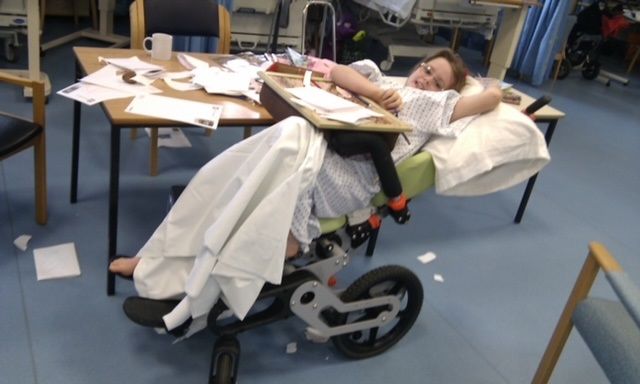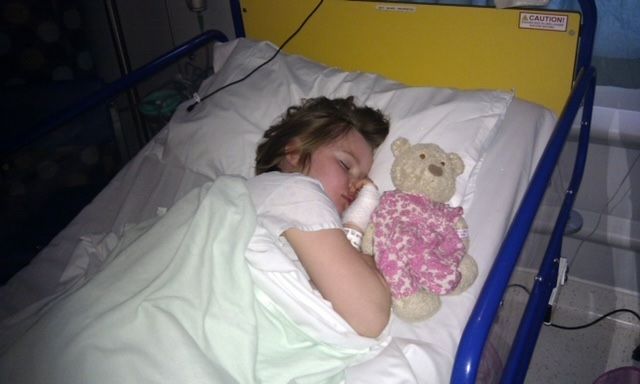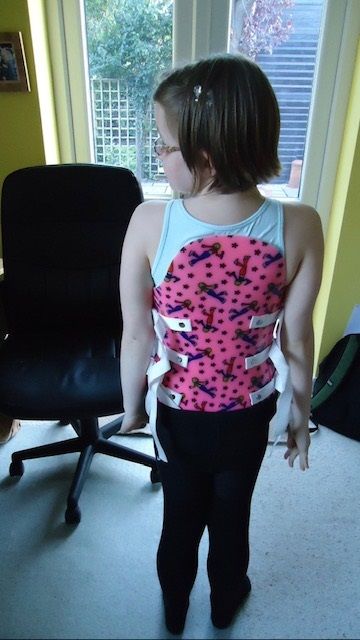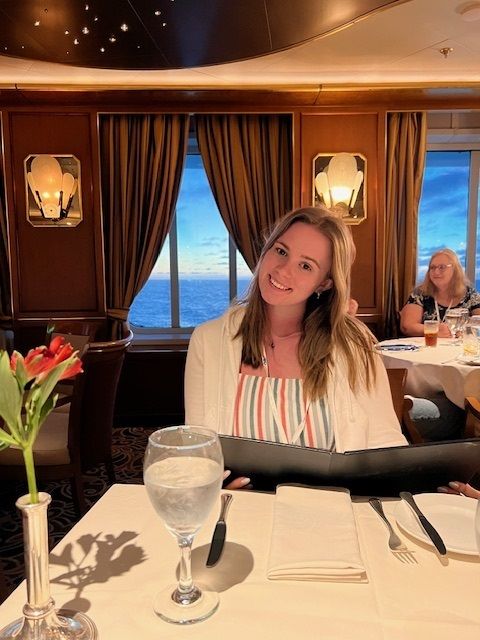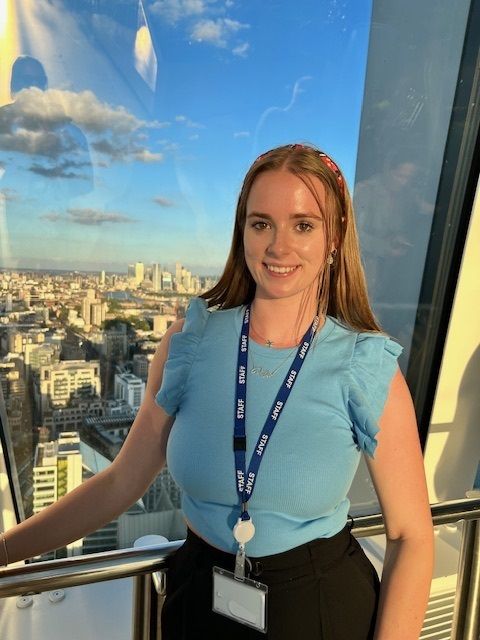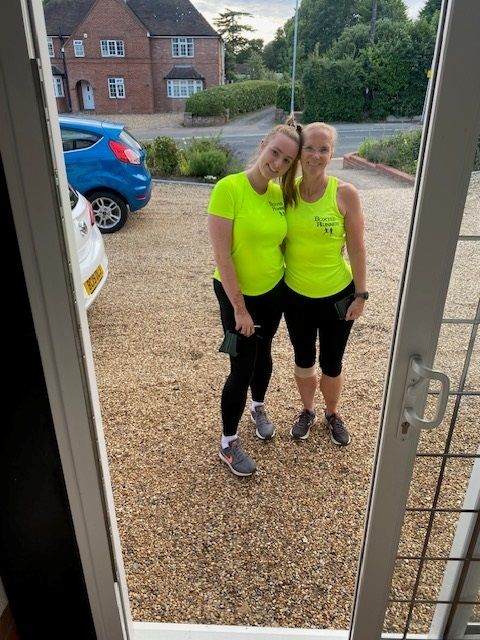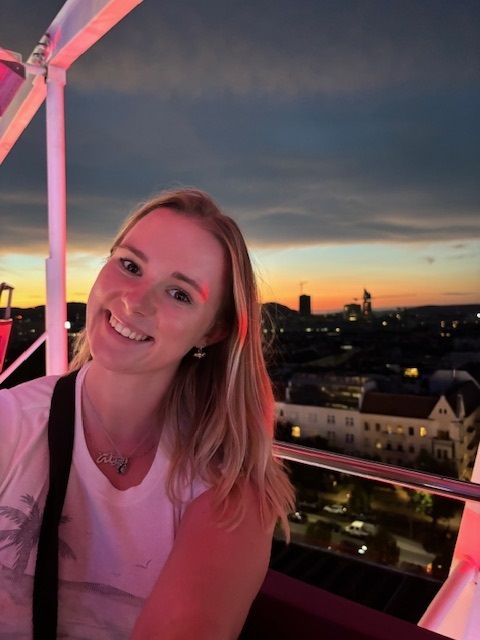A woman who spent months using a wheelchair, and needed surgery aged seven to remove a mass on her spine, said “sometimes the impossible is possible” as she prepares to run her first half marathon.
Jamilla Blake, 20, from Colchester, Essex, will be taking part in this year’s Royal Parks Half Marathon on October 13, to raise money for the Royal National Orthopaedic Hospital (RNOH) Charity.
“Sometimes the impossible is possible,” she said. “My mum was told I could be paralysed for life, if I survived at all, but 13 years later I am running the Royal Parks Half Marathon.”
Jamilla Blake used a wheelchair which reclined (Handout/PA)
Aged seven, Miss Blake suffered severe back pain which became so debilitating that she could no longer walk and needed a wheelchair.
An initial X-ray showed a mass on her spine and she was sent to RNOH for a further CT biopsy and MRI scan.
The results found the pain was being caused by a “benign lesion” known as an aneurysmal bone cyst, which was wrapped around her L3 and L4 vertebrae in her lower back and was putting pressure on her spinal cord.
Aneurysmal bone cysts affecting the spine are exceptionally rare, especially in people so young, affecting only about one in a million people.
Miss Blake underwent complex surgery, which lasted 10 hours and was successful, but said her recovery was frustrating.
Jamilla Blake said she had expected to wake up feeling better after surgery because she did not understand that recovery would take a long time (Handout/PA)
“The surgery was difficult, as I was being told that the surgery was going to stop the pain and make things better, so I was expecting to come out of surgery feeling completely better again,” she said.
“It was tricky to understand the recovery process at that age, especially when I spent a few nights in the emergency unit in worse pain than I had been in before.
“However, I do remember when I was in hospital, how there were always people worse off than me.
“I shared a ward with children who were paralysed for life, and a toddler having his leg removed due to cancer, so from a young age I did start to feel grateful for the position I was in.”
Recovery was ‘a really long and slow process’, Jamilla said (Handout/PA)
Miss Blake, who had to spend two weeks lying completely flat after her surgery, added: “Despite our situations we still managed to have a good time on Sunday hospital radio bingo and with takeaway nights.”
She was also visited by Princess Eugenie, royal patron of the RNOH Charity.
She wore a plaster cast for five months when she was discharged, followed by a brace for an additional six months, and relied on a special wheelchair which was permanently reclined as she was unable to bend at the waist.
Miss Blake said recovery was “a really long and slow process” with months of physiotherapy and hydrotherapy, as she regained strength in her back.
Miss Blake said now she is an adult she is more appreciative of being alive and being able to enjoy life (Handout/PA)
“I was very impatient during recovery and tried to do everything I was missing,” she said.
“I was also very aware of how hard it was for mum pushing the big chair around. We live at the top of a long hill and after one of our days in town she was pushing the wheelchair up the hill and had to stop for a break.
“I then got out and walked a few steps to try and help. She thinks it is my determination, or stubbornness, that made me recover so successfully.”
Miss Blake added: “I remember a lot about being in the wheelchair, felt very embarrassed at times as it wasn’t a ‘normal’ wheelchair.”
During a trip into town, she said, “a lady came over and started touching me and talking to my mum about what was wrong with me over my head”.
Jamilla Blake is now a professional economist degree apprentice at the Bank of England (Handout/PA)
“I found that very insulting and realised how people’s perceptions of disability are often very wrong, as obviously I was more than capable of speaking and answering her questions myself.”
She had a phased return to school but said: “I hated being unable to go outside and run around with my friends but at least I got to go back after quite a few weeks off.
“I was desperate to get back to dance classes and gymnastics, which I had been doing before, and it felt very frustrating not being able to do what other people my age were doing.”
Since her surgery, Miss Blake has raised funds for RNOH, focusing on supporting their medical research – the type of research which saved her life.
Jamilla Blake said her mother Jan Wilcox is ‘the strongest person I know’ (Handout/PA)
Her consultant had pioneered a new treatment method tailored to her young age, monitoring her progress until she turned 15, to create a comprehensive report for future cases.
“Without the surgery I had, I would have been treated with metal in my spine, which had been done before, but it would have stunted my growth and led to annual operations to extend the metal as I grew,” she said.
Miss Blake is now a professional economist degree apprentice at the Bank of England, studying for an economics degree while working as an assistant banking supervisor for mid-tier banks.
She started running a few years ago and had reached 6.2 miles (10km) before stopping for two years.
Running the Royal Parks Half Marathon will be a ‘huge achievement’, Jamilla Blake said (Handout/PA)
In May this year, she started running again to prepare for the Royal Parks Half Marathon and hopes to inspire those undergoing medical challenges of their own.
Her mother, Jan Wilcox, had breast cancer in 2009, blood clots in her lungs in 2013 and sepsis in 2017.
“My mum is the strongest person I know,” she said. “I constantly want to make her proud, and I know that not only doing the half marathon but also getting out and training makes her proud, particularly as she is a runner herself, and that is so important for me.”
She chose the Royal Parks Half Marathon, which goes through Hyde Park, The Green Park, St James’s Park and Kensington Gardens, in London, as her first 13.1 mile (21km) event “because I wanted it to be somewhere I would actually enjoy running around”.
“To get round the course will be a huge achievement for me,” she said.
“As I’ve grown older, and fully understand how serious the situation was, I am much more appreciative of being alive and being able to enjoy life the way I do.”
Miss Blake has been chosen as one of the inspiring stories from the event which are highlighted through a partnership with Royal Bank of Canada.
The bank also gives a champion award and a charity donation of £5,000 to the highest individual fundraiser on JustGiving by 11.59pm on September 29.
– To support Miss Blake’s fundraising, go to: https://www.justgiving.com/page/jamilla-blake-1720355689427.
